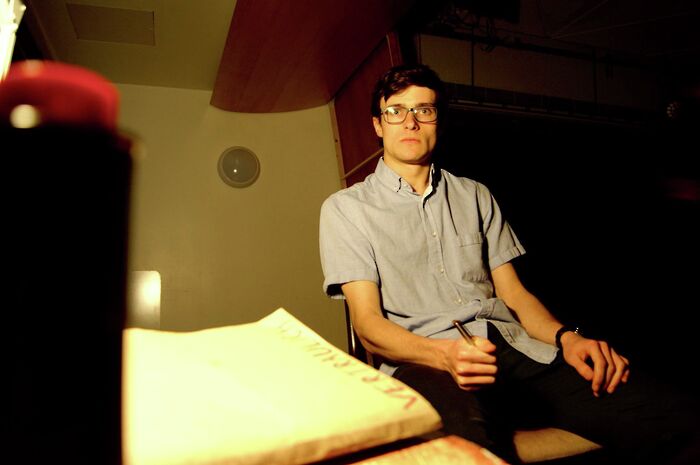Shot in the Dark review: ‘a fun, silly, zany hour of theatre’
Emer O’Hanlon enjoyed Ella Godfrey and Simon West’s “tight and punchy” script

Set amid the Cold War in the 1950s, Shot in the Dark is a slapstick spy comedy with a side helping of ridiculousness and a large dose of silly. A pair of NKVD agents send the actress Irene to Britain as a double agent while, five years later, a group of top MI4 agents celebrate Irene’s eventual assassination after years of hard work. As the champagne corks pop, talk turns to one very obvious topic – just which one of them was it who killed Irene, and how did they do it? What follows is a zany foray between past and present, as we dive into flashback sequences in which each of the agents describes their encounters with Irene and their (uniformly disastrous) attempts to assassinate her.
Ella Godfrey and Simon West’s script is tight and punchy, and feels nicely polished in the way that the story moves at a fast pace and joke follows joke – some puns, some surreal, some downright silly. There’s also something mature and assured about Shot in the Dark – one can sense Godfrey and West’s confidence in their style of writing, and the result is a one hour play that feels very neat and controlled, in the way that all good comedy writing should be.
“Excellent across the board”
This calm confidence in the writing is only helped along by the cast, who were excellent across the board and gave performances which were highly enjoyable and watchable. The cast of MI4 spies (Thea Arch, Evie Butcher, Luke Baines and Adam Reeves) played off each other very well, conveying in a short amount of time the wonderful sense of a team who by necessity had to work with each other a lot and who in reality all got on each other’s nerves. Anna Wright went down very well as the elderly secretary Penny, and Will Harvey-Powell and Simon West (playing the conveniently-named Comrade Fukqov) also enjoyed a fun turn as the NKVD spies who recruited comrades based on muscles and chiselled jaws over any kind of army experience. Perhaps the actor with the toughest job was Kathryn Cussons who (as Irene) flitted in and out of flashbacks and therefore didn’t get to play off the main characters so much. This is not a criticism, however – one of the best scenes in the play is the part where Irene enthusiastically mistakes a dead body for an exciting new modern art installation, waffling on about it in a way which should be familiar to any humanities student trying to blag their way through an essay.
"Shot in the Dark was such a joy to watch”
In terms of production, Shot in the Dark went for a cluttered set in which all the props were onstage from the beginning, and this certainly helped things to run smoothly. In transitions between the present day and flashbacks, the show alternated between a series of saxophone solos and old-time-style increasingly surreal radio reports (the latter of which were extremely enjoyable).
Sometimes it feels much more difficult to convey in a review what makes a comedy, rather than something more serious, work. Discussing something like comic timing or energy between the players can reduce comedy to a set of sterile formulae, things we all know are important in a comic performance but which are perhaps not as interesting to read about as magnificent set-pieces or new interpretations of already-familiar characters. This feels like the case with Shot in the Dark. Sometimes simply saying that everything worked as it should have seems like faint praise, but in the case of comedy, it’s so crucial. It is a fun, silly, zany hour of theatre in the familiar world of Cold War spies which doesn’t pretend to be saying anything of more serious consequence – often, that feels like just what we need, and that’s why Shot in the Dark was such a joy to watch
 News / Rowing row continues as Oxford and Cambridge scrap women’s trial race9 April 2025
News / Rowing row continues as Oxford and Cambridge scrap women’s trial race9 April 2025 Features / Cambridge: where toxic productivity turns rest into a radical act8 April 2025
Features / Cambridge: where toxic productivity turns rest into a radical act8 April 2025 News / Uni to ‘review’ tripos rankings and weekend lectures in undergrad teaching overhaul10 April 2025
News / Uni to ‘review’ tripos rankings and weekend lectures in undergrad teaching overhaul10 April 2025 News / Under 3% of applicants for Cambridge academic jobs are successful7 April 2025
News / Under 3% of applicants for Cambridge academic jobs are successful7 April 2025 Comment / Death of the June Event?9 April 2025
Comment / Death of the June Event?9 April 2025





